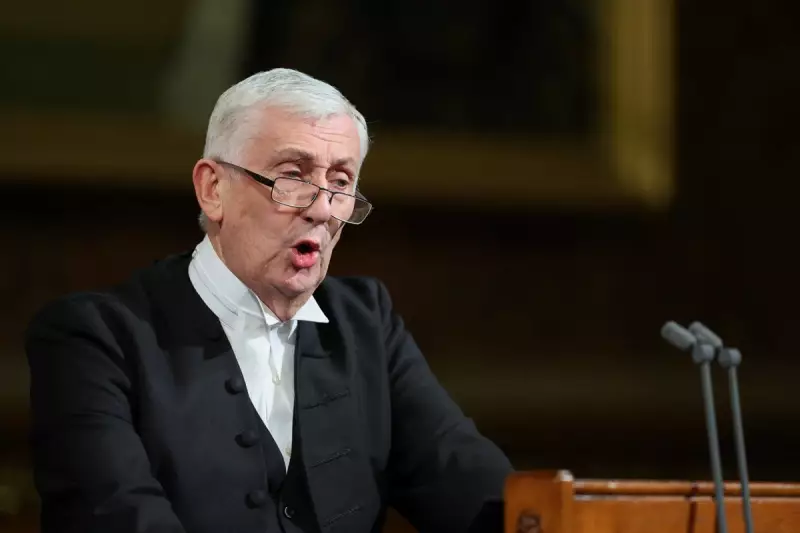
House of Commons Speaker Sir Lindsay Hoyle is facing a firestorm of criticism and calls for his resignation following a highly unusual decision that has thrown Westminster into turmoil.
The controversy erupted when Sir Lindsay allowed a vote on a sensitive amendment concerning China's human rights record, specifically its treatment of the Uyghur Muslim minority. This move directly contradicted long-standing parliamentary convention, which typically blocks amendments to motions tabled by the Opposition.
A Breach of Protocol Sparks Fury
The decision has ignited fury from MPs across the political spectrum. Critics accuse the Speaker of undermining the authority of the chair and setting a dangerous precedent that could politicise the traditionally neutral role.
More explosively, the move has raised serious questions about potential behind-the-scenes influence. Labour leader Sir Keir Starmer was facing a significant rebellion from his own backbenchers, who were prepared to support a tougher amendment on China. Allowing a vote on a government alternative is seen by many as a move to spare Sir Keir a damaging political defeat.
The China Question and Diplomatic Tensions
At the heart of the debate is the UK's stance on China. The original Labour motion called on the government to formally declare that China is committing crimes against humanity and genocide against the Uyghur people in Xinjiang.
The government's successful amendment, which ultimately passed, significantly watered down this language. This has led to allegations that diplomatic pressure from Beijing may have played a role in shaping both the government's position and the Speaker's unprecedented ruling.
Senior MPs and constitutional experts have expressed profound concern, warning that the integrity of parliamentary process appears to have been compromised for short-term political convenience. The fallout continues to escalate, placing Sir Lindsay Hoyle's future as Speaker in serious doubt.






